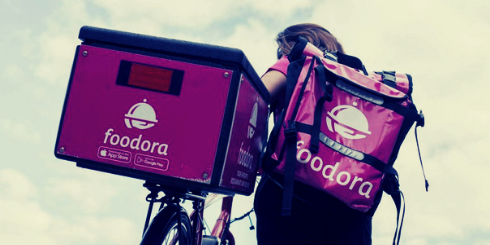The $2.6 million question.
Recent gig economy outcomes show the importance of obtaining early advice.
Recently, Worrells finalised its distribution of outstanding deemed employee entitlements to delivery riders under Foodora Pty Ltd (subject to a Deed of Company Arrangement). Approximately $2.6 million has been paid to priority creditors such as delivery riders who were underpaid their employee entitlements by the company treating them as contractors.
This ground-breaking work we completed involved working with the company, the creditors including the Australian Taxation Office (ATO) and State Revenue offices, the various regulators and the Transport Workers Union (TWU) that represented the riders. That work saw us arrive at a solution that facilitated the German parent company making a significant contribution of funds; and through a sophisticated process of calculations and engaging with the riders to lodge claims and pay the respective riders their entitlement dividend.

Simon Cathro and Ivan Glavas of Worrells, were appointed voluntary administrators and then appointed Deed Administrators of Foodora Limited at a meeting of creditors. The Foodora matter had unique sensitivities relating to employees and sub-contractors working in the gig economy. The gig economy can be described as a free market system of temporary positions where organisations contract with independent workers for short-term engagements. The issue Foodora faced was whether the riders were being engaged on a short-term engagement or employed on a more permanent basis.
A Deed of Company Arrangement (DOCA) was proposed by the company’s German parent company after Worrells reached the position—following extensive expert and legal advice—that it was more likely than not that the majority of riders should have been classified as company employees rather than independent contractors. This decision was in line with a Fair Work Commission (FWO) decision in a case brought by the TWU and former Foodora delivery rider, Josh Klooger.
Given Foodora riders were considered by the deed administrators to have been employees and not independent contractors, that gave them the right to lodge a claim in the DOCA to receive an amount for the underpayment of their employee entitlements. The riders that lodged a claim also had their underpaid superannuation entitlements paid on their behalf.
Other gig economy contractors have not been so lucky, with FWO recently ruling that Uber Australia drivers are not employees. In June 2019, the two-year investigation into Uber drivers’ employment status was finalised. The call to investigate followed complaints from united Uber drivers who thought that Uber was perhaps circumventing Australian workplace law in its treatment of drivers. This means that some workers in the gig economy will be treated as employees and entitled to the usual employee entitlements as set out in the relevant Award, while other workers will be engaged as contractors and will not be treated differently.
Putting aside the issues of ‘fairness’ for Australian workers, or rightful compensation for workers whose livelihood relies on the gig economy industry, this uncertainty highlights the need for gig economy businesses, and those that deal with them, to be properly informed and seek expert advice early, to avoid the mess. While the Foodora matter resulted in workers receiving a dividend for the underpaid employee entitlements, the business failed, and workers are out of work. For Uber, workers remain employed and the business continues to trade but workers may be unfairly underpaid. Both examples show the significant problems in the gig economy and possible unfairness and uncertainty for workers, which requires clarity through legislative change.
Operators of gig economy businesses and workers alike, must be properly informed of their circumstances and obtain expert advice on their respective options, rights and entitlements. For gig economy workers, the TWU is very active in this space assisting and acting on behalf of employees.
Meanwhile however, many different types of business are affected by the position of contractor versus employees—not just the gig economy businesses. The cost to a business for making an error in the proper determination of how workers are employed and paid can be significant. It is possible for a contingent liability for the underpayment of employee entitlements to be incurred until the issue is properly determined. If workers that have been treated as contractors are found to be employees, substantial liabilities are highly likely to crystallise including:
- unpaid superannuation
- PAYG
- employee entitlements in accordance with the most applicable Award
- payroll tax
- workers compensation
- any interest and penalties for non-payment.
Unfair dismissal rules and minimum wage awards must also be thoroughly considered.
In the Foodora example, the contingent liability continued to accrue at the workers’ expense until regulators and litigation proceedings brought the issue to a head. This, however, also culminated in the company’s failure.
It seems that the current opinion is that a lack of conclusive precedence remains on the contractor versus employee issue in the gig economy, and therefore the position must be assessed on a case-by-case basis.
What is abundantly clear is that advisors and business owners must get early expert advice and proactively engage with the regulators on this issue. The question of employee versus contractor entitlements is neither unique or exclusive to the gig economy industry. At Worrells, at our 28 locations with 30 partners across Australia, we deal with a full range of businesses that are vulnerable to insurmountable debts crystalising from misunderstanding or misapplying of worker designations. Your local Worrells partner is here to help. Contact us for a complimentary and confidential discussion.


